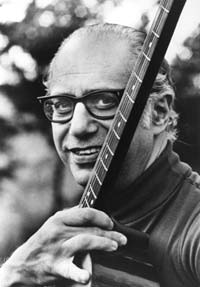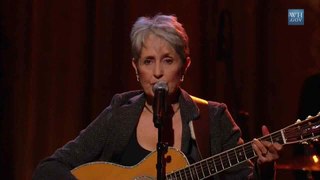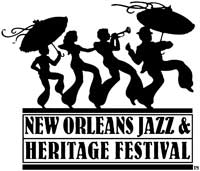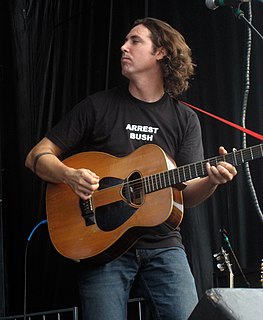The Great Labor Arts Exchange is an annual arts festival in Silver Spring, Maryland, which celebrates the labor history of the United States as well as preserves, advances and promotes the culture of the American labor movement.

An arts festival is a festival that can encompass a wide range of art genres including music, dance, film, fine art, literature, poetry etc. and isn't solely focused on "visual arts." Arts festivals may feature a mixed program that include music, literature, comedy, children's entertainment, science, or street theatre, and are typically presented in venues over a period of time ranging from as short as a day or a weekend to a month. Each event within the program is usually separately ticketed.

Silver Spring is an unincorporated community, village, suburb of Washington, D.C., and census-designated place located inside the Capital Beltway in Montgomery County, Maryland, United States. It had a population of 79,483, according to the 2017 official estimate by the United States Census Bureau, making it the fourth most populous place in Maryland, after Baltimore, Columbia, and Germantown, and the second largest in Montgomery County after Germantown. Inner Silver Spring consists of the following neighborhoods: Downtown Silver Spring, East Silver Spring, Woodside, North Woodside, Woodside Park, North Hills Sligo Park, Long Branch, Montgomery Knolls, Franklin Knolls, Indian Spring Terrace, Indian Spring Village, Clifton Park Village, New Hampshire Estates, Oakview, and Woodmoor. Outer Silver Spring consist of the following neighborhoods: Four Corners, Wheaton, Glenmont, Forest Glen, Aspen Hill, Hillandale, White Oak, Colesville, Colesville Park, Cloverly, Calverton, Briggs Chaney, Greencastle, Northwood Park, Sunset Terrace, Fairland, Lyttonsville, and Kemp Mill.

The labor history of the United States describes the history of organized labor, US labor law, and more general history of working people, in the United States. Beginning in the 1930s, unions became important components of the Democratic Party. However, some historians have not understood why no Labor Party emerged in the United States, in contrast to Western Europe.
In June 1979, Joe Glazer, a composer, musician and educator active in the American labor movement, invited 14 other labor musicians to the George Meany Center for Labor Studies in Silver Spring to share labor-related musical and written compositions, and to discuss the effective use of music, song, poetry and chants in labor activism. The three-day event became an annual one, becoming known as the Great Labor Arts Exchange (GLAE).

Joe Glazer, closely associated with labor unions and often referred to as "labor's troubadour," was an American folk musician who recorded more than thirty albums over the course of his career.
The National Labor College was a college for union members and their families, union leaders and union staff in Silver Spring, Maryland. Established as a training center by the AFL-CIO in 1969 to strengthen union member education and organizing skills, NLC became a degree-granting college in 1997 and in March 2004 gained accreditation from the Middle States Commission on Higher Education. Until the college closed on April 26, 2014, it was the only college of its kind in the United States.
Over the next five years, the concept of "labor culture" and how the labor movement and the arts interacted which Glazer and others held expanded. In 1984, Glazer incorporated the Labor Heritage Foundation as a parent body for GLAE as well as to curate and promote the culture of the American labor movement.
The Labor Heritage Foundation is a non-profit organization which preserves and disseminates information and artifacts about the labor history of the United States.
GLAE remains the largest and most prominent program of the Labor Heritage Foundation. The festival now includes a variety of artistic and cultural endeavors, such as cartooning, painting, film, puppetry, street theater, and photography. GLAE participants have included singer Pete Seeger, artist Ralph Fasanella, photographer Earl Dotter and poet Chris Llewellyn.

Peter Seeger was an American folk singer and social activist. A fixture on nationwide radio in the 1940s, he also had a string of hit records during the early 1950s as a member of the Weavers, most notably their recording of Lead Belly's "Goodnight, Irene", which topped the charts for 13 weeks in 1950. Members of the Weavers were blacklisted during the McCarthy Era. In the 1960s, Seeger re-emerged on the public scene as a prominent singer of protest music in support of international disarmament, civil rights, counterculture, and environmental causes.
Ralph Fasanella was a self-taught painter whose large, detailed works depicted urban working life and critiqued post-World War II America.
Chris Llewellyn is an American poet.
The Labor Heritage Foundation began presenting the Joe Hill Award in 1989. The award, given during GLAE, honors individuals for a body of work in the field of labor culture.
The Joe Hill Award is awarded annually at the Great Labor Arts Exchange by The Labor Heritage Foundation.










